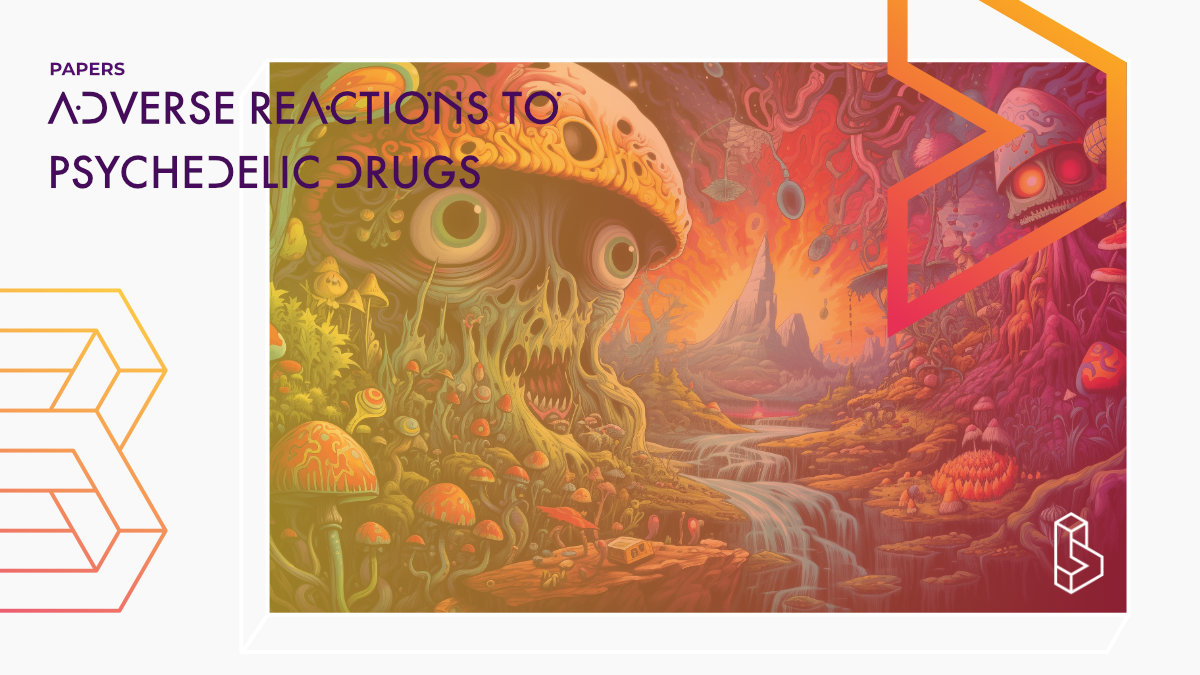A review of the literature in 1984 by Rick J. Strassman concludes that there were very few adverse reactions to LSD usage. The methodology of the original research – and thus also the literature review – is less rigid than for studies conducted after the year 2000. Strassman also states that there is little to no evidence of organic brain damage or changes in personality, attitude, and creativity for patients and healthy normals.
Abstract of Adverse Reactions to Psychedelic Drugs
“The use of naturally occurring and synthetically derived compounds for their “psychedelic” effects has been a part of human culture for thousands of years. The basic pharmacology of the major synthetic psychedelic compounds primarily lysergic acid diethylamide [LSD] is described and reference is made to their potentially beneficial psychological effects. Adverse reactions, defined as dysphoric and/or maladaptive/dysfunctional responses to the use of these drugs, sometimes require careful clinical judgment in order to diagnose. These reactions can be effectively classified along a temporal continuum, Acute, short-lived reactions are often fairly benign, whereas chronic, unremitting courses carry a poor prognosis. Delayed, intermittent phenomena “flashbacks” and LSD-precipitated functional disorders that usually respond treatment appropriate for the non-psychedelic-precipitated illnesses they resemble, round out this temporal means of classification, The question of organic brain damage as well as permanent changes in personality, attitudes, and creativity in patients and normals who have repeatedly ingested psychedelic drugs is controversial, but tends to point to subtle or nonsignificant changes. Future areas for study of the psychedelics’ pharmacological, psychological, and. therapeutic effects are suggested.”
Notes on Adverse Reactions to Psychedelic Drugs
With regard to the methodology, the main thing that is missing from the data is pre-LSD information on the patients (or participants). Strassman has excluded all studies with less than 10 people and divided the rest into these groups:
- Acute treatment facility (emergency room)
- Questionnaires for clinicians (about their patients – most data came from this group >10,000)
- Follow-up of subjects
- Responses from subjects (immediately)
The author also lists some reasons why/which groups had more adverse reactions: “There is a tendency for people with poorer premorbid adjustment, a history of psychiatric illness and/or treatment, a greater number of exposures to psychedelic drugs and correlatively, a greater average total cumulative dosage taken over time, drug-taking in an unsupervised setting, a history of polydrug abuse, and self-therapeutic and/or peer-pressure-submission motive 122 for drug use, to suffer these complications .”
In the summary/conclusion he writes: “With the available data, it appears that the incidence of adverse reactions to psychedelic drugs is low, when individuals both normal volunteers and patients are carefully screened and prepared, supervised, and followed up, and given judicious doses of pharmaceutical quality drug. The few prospective studies noting adverse reactions have fairly consistently described characteristics predicting poor response to these drugs. The majority of studies of adverse reactions, retrospective in nature, have described a constellation of premorbid characteristics in individuals seeking treatment for these reactions where thugs of unknown purity were taken in unsupervised settings.”
Summary of Adverse Reactions to Psychedelic Drugs
Cannabis products and certain species of mushrooms were used for inducing altered states of consciousness as long ago as 5000 B.C. in India and the New World.
The modern era of mind-altering drugs began with Albert Hofmann’s accidental ingestion of LSD-25 in 1943, but was quickly aborted in the late 1960s as fears of adverse acute and chronic effects of wide spread use and abuse began to come to light.
Find this paper
Adverse Reactions to Psychedelic Drugs - A Review of the Literature
https://doi.org/10.1097/00005053-198410000-00001
Open Access | Google Scholar | Backup | 🕊
Cite this paper (APA)
Strassman, R. J. (1984). Adverse reactions to psychedelic drugs. A review of the literature. The Journal of nervous and mental disease, 172(10), 577-595.
Authors
Authors associated with this publication with profiles on Blossom
Rick StrassmanRick Strassman is an associate professor of psychiatry and best known for his DMT research in the late 1990s and his subsequent book DMT: The Spirit Molecule.

